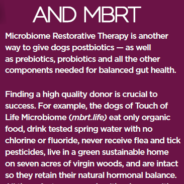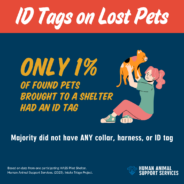Effective dog training with food rewards — 9 tips for success
Master effective dog training with food rewards! Learn expert tips for using treats to encourage desirable behaviors and build a better bond. If you’ve ever trained a dog, you’ve probably noticed that food and treats tend to get the best and quickest results. This article explores effective dog training with food rewards. You’ll find nine tips on how professional trainers use food rewards to encourage desirable behaviors from their canine students. Tip #1: Know that dogs don’t get addicted to food rewards ...
Mmm, Feet… Why Do My Dogs Like Licking Me? The Attraction & Whether It’s Normal
VET APPROVED The information is current and up-to-date in accordance with the latest veterinarian research. Learn more » Hi, I’m Dr. Karyn! Read my introduction to learn more about me and my five funny dogs, Poppy, Bailey, Kodah, Ned, and Fred. I don’t think there’s any doubt that, despite having many shared food interests, dogs and humans do not always see eye to eye about what should go in one’s mouth. There are dogs that enjoy partaking in poop (or in Fred’s case, picking bits of carrot out of...
Postbiotics for dog gut health
Support your dog’s digestion, enhance immunity, and promote a balanced microbiome with this innovative approach. Explore the benefits of postbiotics for dog gut health. A “new kid on the block”, postbiotics play a range of roles and offer numerous benefits for your dog’s gut health. By now, most of us are familiar with probiotics and prebiotics. These compounds offer significant health benefits for both humans and dogs. More recently, the term “postbiotics” has been coming into view. You may be...
Insights from the Field
Shelters with High Return-to-Home Rates for Dogs While many animal shelters continue to face challenges in successfully reuniting lost pets with their owners, some have developed innovative strategies and are making significant strides in this crucial area. With current trends in technology, data sharing, and community outreach, many shelters are achieving impressive return-to-home rates. British Columbia SPCA and HASS Partner Organization, Wisconsin Humane Society, are two shelters who are achieving dog return-to-home rates as high as 80% by...
Holistic Approaches to Managing Feline Chronic Kidney Disease
Chronic Kidney Disease (CKD) is a prevalent condition affecting many cats, particularly those in their senior years. As a cat parent, understanding holistic approaches to managing CKD can significantly improve your feline companion’s quality of life. Understanding Feline Chronic Kidney Disease CKD is a progressive disease characterized by the gradual loss of kidney function, which can lead to a buildup of waste products in the bloodstream. It affects 30-40% of senior cats, making awareness and proactive management essential. While...
Maddie’s Fund is hiring a Marketing and Communications Project Manager
Maddie’s Fund is looking for an experienced Marketing and Communications Project Manager to enhance and collaborate with its existing team. If you are looking for an opportunity to work within a dynamic environment and an established group, please submit your cover letter, sharing how your experiences are applicable for the role along with your resume to employment@maddiesfund.org. Accepted applications for the position will close on Friday, January 31, 2025. For questions about the role, please feel free to...
Dogster Photo Contest: Dogs of the Week Winners (Jan 9, 2025)
Click to Skip Ahead This Week’s Winner Name: Minnie Breed: Cairn Terrier Fun Fact: We have only had Minnie 5 weeks and are over the moon with her puppy energy and love. She came to us a bit timid but became her outgoing self quickly. Ball and tug toys are her favorite 🤩 Cutest Name: Midge Breed: shichi 1/2 shihtzu 1/2 chihuahua Fun Fact: Midge is 5 yrs old. 6 lbs. She is very quiet. Only barks at my husband. Very loveable. She loves to pose like this for pictures. She most always has her tongue stuck out a little bit. Most...
How to protect your dog or cat during power outages
Ensure your pets stay safe and stress-free during severe weather events. Learn how to protect your dog or cat during power outages. Hurricanes, tornadoes, and other severe storms are becoming fiercer and more frequent. As a result, widespread power outages are common. According to Climate Central, weather-related events caused 80% of power outages in the US over the past 23 years. It’s important to prepare for a prolonged power outage by making a plan that covers both your animal and human family. Read on to learn how to protect your...
Boosting Your Cat’s Immune Function with Spirulina
Cats are beloved companions, and their health is a top priority for those who cherish them. As cat parents, finding natural ways to enhance your feline friend’s immune system can lead to a happier, healthier life. One promising option is spirulina, a nutrient-dense blue-green algae known for its remarkable health benefits. Spirulina is packed with essential nutrients, including proteins, vitamins, and minerals that contribute to overall well-being. Its unique composition includes phycocyanin, an antioxidant that combats oxidative stress...
Winter Wienerland: Draper and Rue’s Snowy Adventures
Welcome to the Wednesday Dogs of Dogster! Every Wednesday, we share a story from one of our Dogsters. This week is about Meagan and her dynamic duo of dachshunds, Draper and Rue. Winter in Canada can be a beautiful season, a time for snow-covered landscapes, warm, yummy drinks, and cozy times indoors, with endless debates over whether snow is a gift from the heavens or a frosty curse. In our household, this seasonal debate is personified (or puppified) perfectly by our dogs, Draper and Rue. These two pups, like in all things, could not be...

























